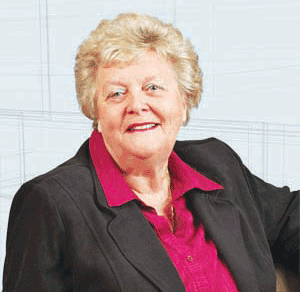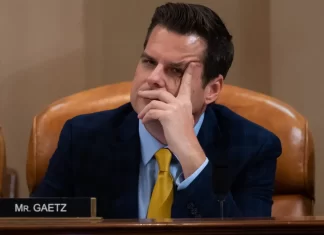Correspondent, SAM NWOKORO, x-rays President Jonathan’s recent trip to London for HIIC summit and its economic importance to Nigeria.
Recently, President Goodluck Jonathan was a guest at the summit of the Nigeria Honorary International Investor Council (HIIC) chaired by Conservative Baroness Linda Chalker, in London.
The summit and its essence cannot immediately be fully appreciated, unless one takes a profile excursion on the personalities behind the HIIC and the extent the council can go in positioning the country’s fledgling democracy before high networth investors overseas.
Trip with a mission
The president’s trip to London only confirmed that he is keeping tabs with global development trends and consolidating partnership as they affect Nigeria.
In the school of leadership, according to Professor Pat Utomi, a development expert with the prestigious Lagos Business School (LBS), “one of the lessons a leader must learn is the ability to focus on issues and attend to priorities. He must have a sense of priority; otherwise he would be beating about the bush. The whole essence of leadership is to achieve result.
“There is no leader anywhere in the world that does not encounter opposition. But the value of such leadership is its ability to always stay above the fray and not to allow itself to be distracted. That way, you demonstrate you know what is desirable. At the end of the day, what counts is the result, not the action.”
Perhaps, the president may have had this in mind when he travelled to London for the HIIC summit under the chairmanship of the famous Baroness Linda Chalker, the former member of British parliament.
HIIC under Chalker offers leadership advice to influential heads of government about development and investment best options as well as leadership strategies in discrete manner that do not necessarily need the debate and politics of home countries.
The profile of Chalker speaks volume about the essence of Jonathan’s trip to this investment summit.
At a moment Nigeria is till scouting for investments here and there, for some other high scale capital-intensive infrastructure, both from government and private entrepreneurs, there is need for relentless investment drive for the rail transport and agriculture sectors. In fact, there is no amount of capital that can be said to be too much for these two sectors. To depend entirely on Nigeria’s local banks to bankroll these projects under the planned PPP (Public Private Partnership) is to starve other borrowers, especially the small businesses, of capital to expand and open the economy inclusively.
Besides, the corporate players who have the requisite ability to mobilise capital and partner with government in its infrastructure upgrade programmes already have their hands full, because these people have been buying everything since Nigeria’s market economy started in 2004. So, the involvement of foreign investors in the remaining part of the county’s capital mobilisation in infrastructure upgrade is important. This shows that the president’s trip to London had a lot of economic and political benefits.
Rubbing mind with global bodies
Baroness Chalker is the honorary chairperson of Nigeria’s HIIC since the regime of former president Olusegun Obasanjo and the late Umaru Yar’Adua presidency. In that capacity, she serves as Nigeria’s private eye on global development and leadership trends, and advises Nigeria’s presidents discreetly on how to key in.
It is not only Nigerian governments, but also for other countries big and small. Uganda’s adoption of market reforms, which has seen the country’s economy open up in the last 10 years, owes much to leadership expertise drawn from the resource personages that constitute the Global Leadership Foundation (GLF), Chalker’s non-governmental organisation (NGO).
GLF is an organisation that works to support democratic leadership, prevent and resolve conflicts through mediation, and promotes good governance in the form of democratic institutions, open markets, human rights and the rule of law. It does so by making available discreetly and in confidence the experience of former leaders. It is a not-for-profit organisation composed of former heads of government, senior governmental and international organisation officials who work closely with heads of government on governance related issues of concern to them.
Chalker was a British conservative Member of Parliament (MP) from 1974 to 1992. She served as Minister of State for Overseas Development and Africa at the Foreign Office from 1989 to 1997. She headed the British delegation that participated in the first Tokyo international conference on African development in 1993. Currently, she holds the 20th century record for continuous service to institutions and humanity.
Since leaving the parliament, Chalker has been chairman of African Matters Limited, an independent consultancy group that provides advice and assistance to companies in area of initiating development strategies and growing their activities. She is also a member of the international advisory Board of Lafarge, one of the reputable building materials companies in the world, and also sits on the Board of Trustees of the think-tank, Investment Climate Facility for Africa.
Chalker had been like a satellite for many developing nations’ public and private sector players, aligning them into the mainstream of global leadership and entrepreneurial know-how.
Importance of foreign capital in today’s economy
In today’s global economy, nations court foreign capital with as much desperation as they courted political independence. In the evening of the 20th century, most developing economies were chocked by the fear of owing external debt to the detriment of growing their local economies. This was particularly the case with many sub-Saharan African nations whose economies were shambled by incessant military rules.
Until the turn of the century, most African nations still ran state-controlled economies. One study conducted by the World Bank showed that the rapid growth of most South East Asian nations owed to the drive for foreign direct investment (FDI). This came as the state let go of managing business entities. To fast-track growth of private enterpreurship, their banking systems were also reformed. Family ownership of banks were systematically stripped through higher demand for capital base, followed by corporate restructuring and rights issues. Some family banks that could not meet the state’s recommended capital bases were either taken over by states asset management vehicles or were forced to sell off themselves or merge with willing financial houses, exactly what the Nigerian government did a few years ago through the Central Bank of Nigeria (CBN) under Chukwuma Soludo.
The effect of the banking reforms of the South East Asian nations was that it boosted banks’ capital bases. The number of brand names were few, but their balance sheets were healthy enough to give international credit institutions like World Bank, International Finance Corporation (IFC) and other development partners’ confidence to advance credits and grants to investors in those South East Asian nations’ economies.
Today, many developing countries want more of foreign investors into their domestic economy. For some nations in sub-Sahara Africa partnering private investors in their physical development and economic activities that facilitate fiscal programmes like infrastructure development, the need for private capital from far and wide can hardly be over-emphasised. For Nigeria in particular, whose source of state revenue, crude oil sales, is dwindling due to major customer demand cut-back and fall in oil prices in the international market, a renewed drive for foreign capital this time is of utmost importance.
Perhaps, this may have necessitated President Jonathan’s recent trip to London for the HIIC summit. During the summit, the president had the opportunity of receiving more information about how the business world feels regarding the goings on in Nigeria. It is ironic that though the summit took place while there was political tension in the land, but the issue of Nigeria’s politics did not feature in the dialogue.
The president told his audience that his government would solve the problem of terrorism in some parts of the country and appealed for international cooperation. He also lectured them that infrastructure upgrade is ongoing in many parts of the country, since that remains the needed catalyst for private sector-led growth. He told his audience that what he is doing in the economic front is to erect enduring development structures that future Nigerian leaders would build on.
Peeping into the future
The HIIC has been a veritable source of courting high profile investors into African economies. Most growing economies in the continent, including South Africa, Uganda, Tanzania, Ghana etc have always availed themselves the platform of HIIC to leverage on networks of reputable corporate international investors who have aided the capital rating of newly created businesses in their economies.















